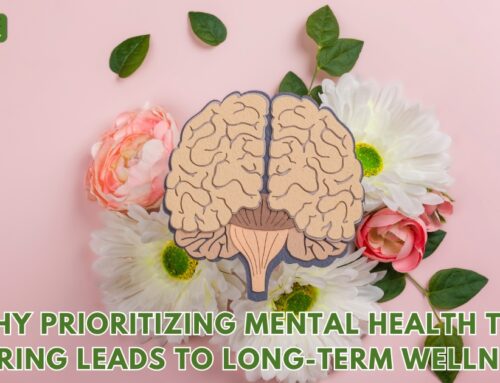How Gratitude Cultivates a Legacy of Positive Change
Gratitude is a simple yet transformative practice that has the power to inspire lasting change. It goes beyond fleeting moments of appreciation—it becomes a way of life, guiding our actions, relationships, and impact on the world. When gratitude becomes a consistent part of how we live, it shapes a legacy that inspires positive change, both within ourselves and in the lives of others.
In this blog post, we’ll explore how gratitude can be used to create a ripple effect of kindness and growth, building a legacy of positive change that lasts for generations.
1. Gratitude as the Foundation for Meaningful Connections
One of the most profound ways gratitude can shape a legacy is by strengthening relationships and fostering deeper connections with others. When we express gratitude, we acknowledge the contributions of those around us, making them feel seen and appreciated.
- Strengthening Personal Bonds: Regularly expressing gratitude to family, friends, and colleagues fosters trust and closeness. These strong relationships provide emotional support and create environments where positivity thrives.
- Fostering Kindness in Communities: When individuals practice gratitude, they inspire those around them to do the same. Communities built on appreciation become more cohesive, supportive, and kind. Over time, these environments encourage collaboration and mutual respect, creating spaces where positive change can flourish.
- Setting an Example for Future Generations: When children see adults consistently practicing gratitude, they are more likely to adopt this mindset as they grow. By showing appreciation in daily life, you plant the seeds for future generations to lead with gratitude, continuing the legacy of positive change.
2. Gratitude Encourages Personal Growth and Resilience
Gratitude isn’t just about external relationships—it’s also a powerful tool for personal development. By focusing on what’s going well in life, we cultivate a mindset of resilience and adaptability, even in difficult times.
- Shifting Perspective: Practicing gratitude helps you see challenges as opportunities for growth. Instead of focusing on what’s lacking or what went wrong, gratitude encourages you to appreciate the lessons learned from adversity. This shift in perspective fosters personal resilience and emotional strength.
- Building Self-Awareness: Gratitude helps you become more mindful of the positive aspects of your life, both big and small. This increased awareness allows you to focus on what truly matters, guiding your decisions and actions in a more meaningful direction.
- Inspiring a Growth Mindset: Gratitude nurtures a growth mindset, where challenges are seen as chances to improve rather than as setbacks. This outlook encourages continuous learning and development, leaving behind a legacy of perseverance and progress.
3. Gratitude Inspires Acts of Kindness and Generosity
When we’re grateful for what we have, we’re more inclined to give back. Gratitude naturally leads to generosity, as we want to share the abundance we feel with others. Whether through small gestures or large-scale efforts, acts of kindness can create ripples of positive change that grow over time.
- Promoting Altruism: Grateful individuals are often motivated to pay it forward, offering their time, resources, or support to those in need. These acts of kindness not only benefit the recipients but also inspire others to give back, creating a chain reaction of generosity.
- Cultivating Empathy: Gratitude helps us recognize the efforts and sacrifices of others, fostering a sense of empathy. This awareness drives us to be more compassionate in our interactions, contributing to a more understanding and inclusive world.
- Leaving a Legacy of Generosity: When you lead with gratitude and kindness, you leave behind a legacy of generosity that others can carry forward. Your actions inspire future generations to approach life with an open heart, continuing the cycle of giving and positive change.
4. Gratitude as a Catalyst for Positive Change
Gratitude encourages us to take action, using our resources and talents to make a difference in the world. By appreciating what we have, we feel empowered to use our strengths to create lasting change.
- Motivating Action: When we reflect on the good in our lives, we often feel inspired to take meaningful action—whether it’s advocating for a cause, volunteering, or contributing to our communities. Gratitude shifts our focus from what we want to what we can give, fueling our desire to make a positive impact.
- Sparking Innovation: Grateful individuals are more likely to approach challenges with creativity and optimism. This mindset encourages innovative solutions to problems, leading to breakthroughs in personal and societal development.
- Building a Legacy of Impact: By combining gratitude with action, you can create a legacy that extends beyond your immediate circle. The positive changes you inspire—whether through community efforts, mentorship, or philanthropy—can have a lasting effect on society, shaping a better future for all.
- Practical Ways to Cultivate Gratitude and Positive Change
Incorporating gratitude into your life doesn’t require grand gestures—it can begin with small, intentional actions that grow over time.
- Start a Gratitude Practice: Take time each day to reflect on what you’re grateful for, whether through journaling, meditation, or simply a moment of quiet reflection. Consistent gratitude helps you stay focused on the positive aspects of life.
- Express Appreciation: Don’t keep your gratitude to yourself—share it with others. A simple thank you can brighten someone’s day and reinforce the positive energy in your relationships.
- Volunteer Your Time: Find ways to give back to your community, whether through formal volunteering or informal acts of kindness. Offering your time and support to those in need is a powerful way to create positive change.
- Lead by Example: Practice gratitude in your daily life and encourage others to do the same. Whether it’s at home, work, or in your community, being a role model for gratitude helps cultivate a culture of appreciation and generosity.
Conclusion
Gratitude is a powerful force that has the potential to shape not only our lives but the world around us. By cultivating gratitude in our relationships, personal growth, and actions, we can create a legacy of positive change that inspires others. The ripple effect of gratitude leads to stronger connections, greater resilience, and a more generous and compassionate society.
At White Oak counseling and recovery, we believe in the power of gratitude to transform lives. Embrace gratitude today and start building a legacy that leaves a lasting, positive impact on future generations.





